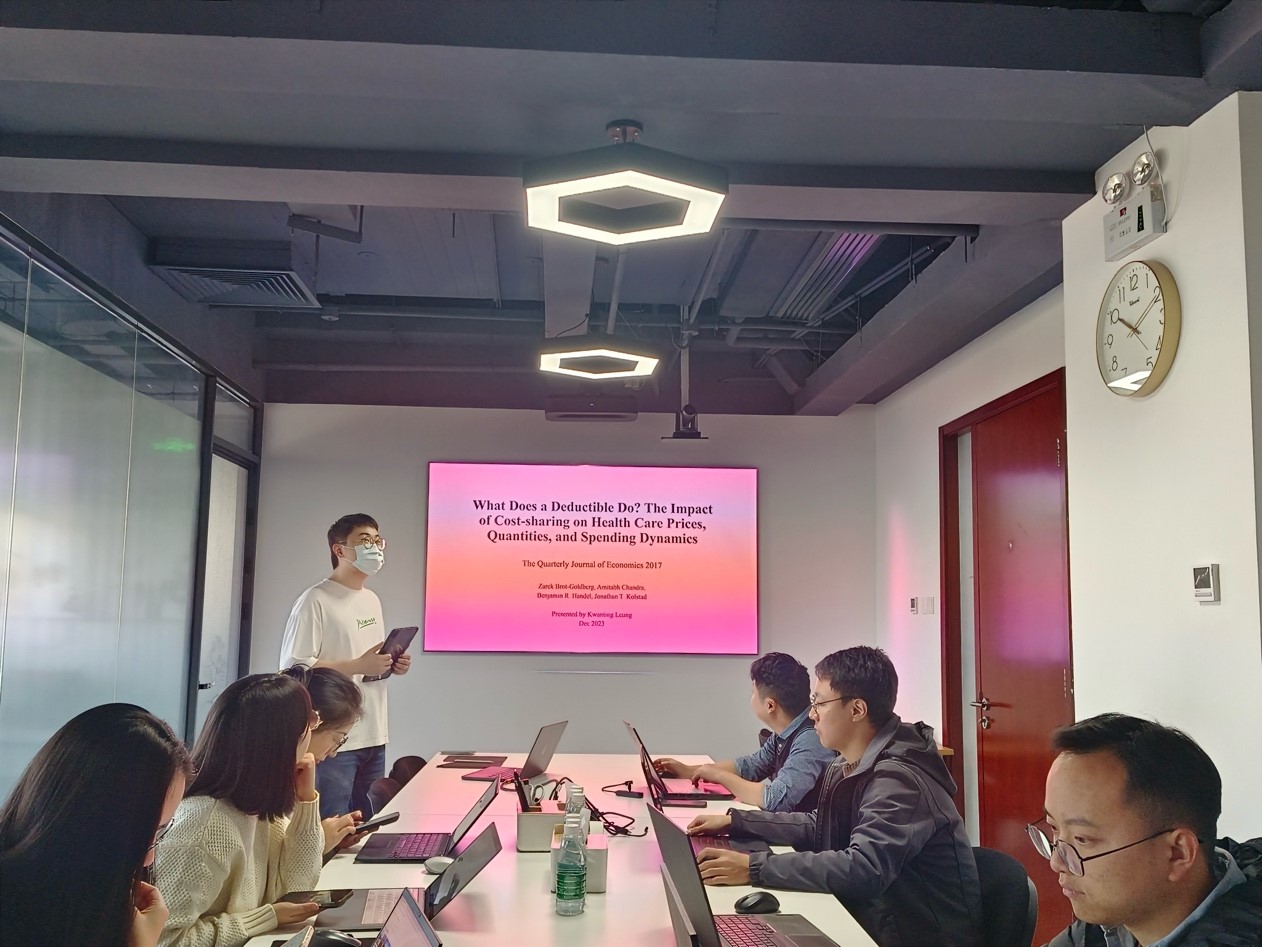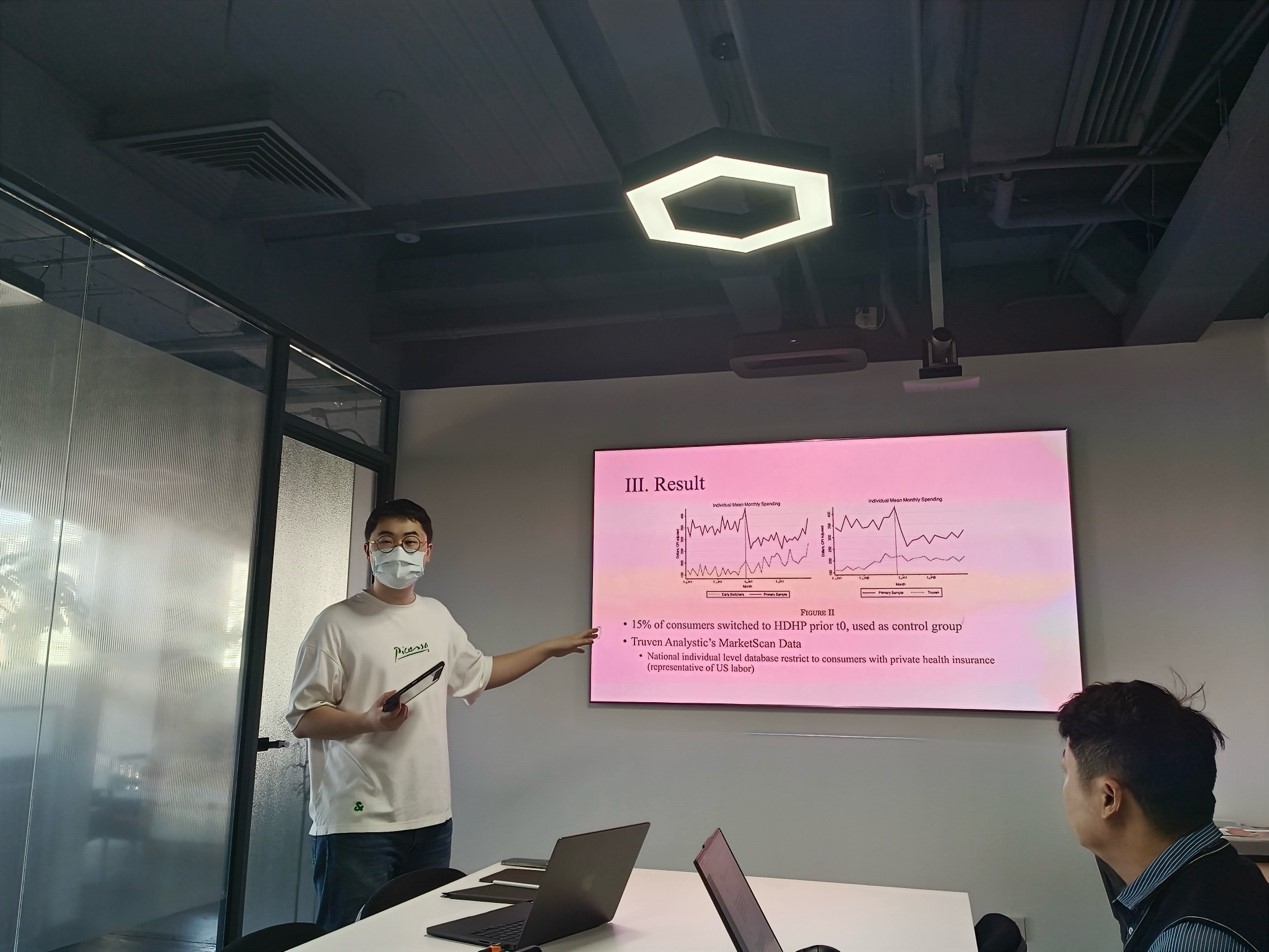On December 1, 2023, from 10:00 to 11:00 am, Peking University Institute of Global Health and Development successfully held the ninth Reading Club in the fall of 2023. The speaker of this event was Leung Kwanting, a Ph.D. student at the Beijing University Global Health Development Institute.

The article shared in this event is titled “What does a deductible do? The Impact of cost-sharing on health care prices, quantities, and spending dynamics,” published in 2017 in The Quarterly Journal of Economics by Zarek Brot-Goldberg, Amitabh Chandra, Benjamin R. Handel, and Jonathan T. Kolstad. The study utilized employee data from a company and the Difference-in-Differences (DID) research model to explore the impact of transitioning from fully insured to deductible and reimbursement ratio-based medical insurance on employee medical consumption. The DID results indicated that the reduction in medical expenses ranged between 11.31% and 15.20%. Further analysis by decomposing medical consumption led to the conclusion that the decrease in healthcare costs primarily stemmed from a reduction in the quantity of healthcare services. Employees significantly reduced their medical expenses by about 42.2% below the deductible, as this portion of medical costs was paid out-of-pocket. When reaching the Out-Of-Pocket-Max, meaning when employees no longer had to pay themselves, their medical consumption did not decrease."

Articles:Brot-Goldberg, Zarek C., Amitabh Chandra, Benjamin R. Handel, and Jonathan T. Kolstad. "What does a deductible do? The impact of cost-sharing on health care prices, quantities, and spending dynamics." The Quarterly Journal of Economics 132, no. 3 (2017): 1261-1318.
(Leung Kwanting/Author)